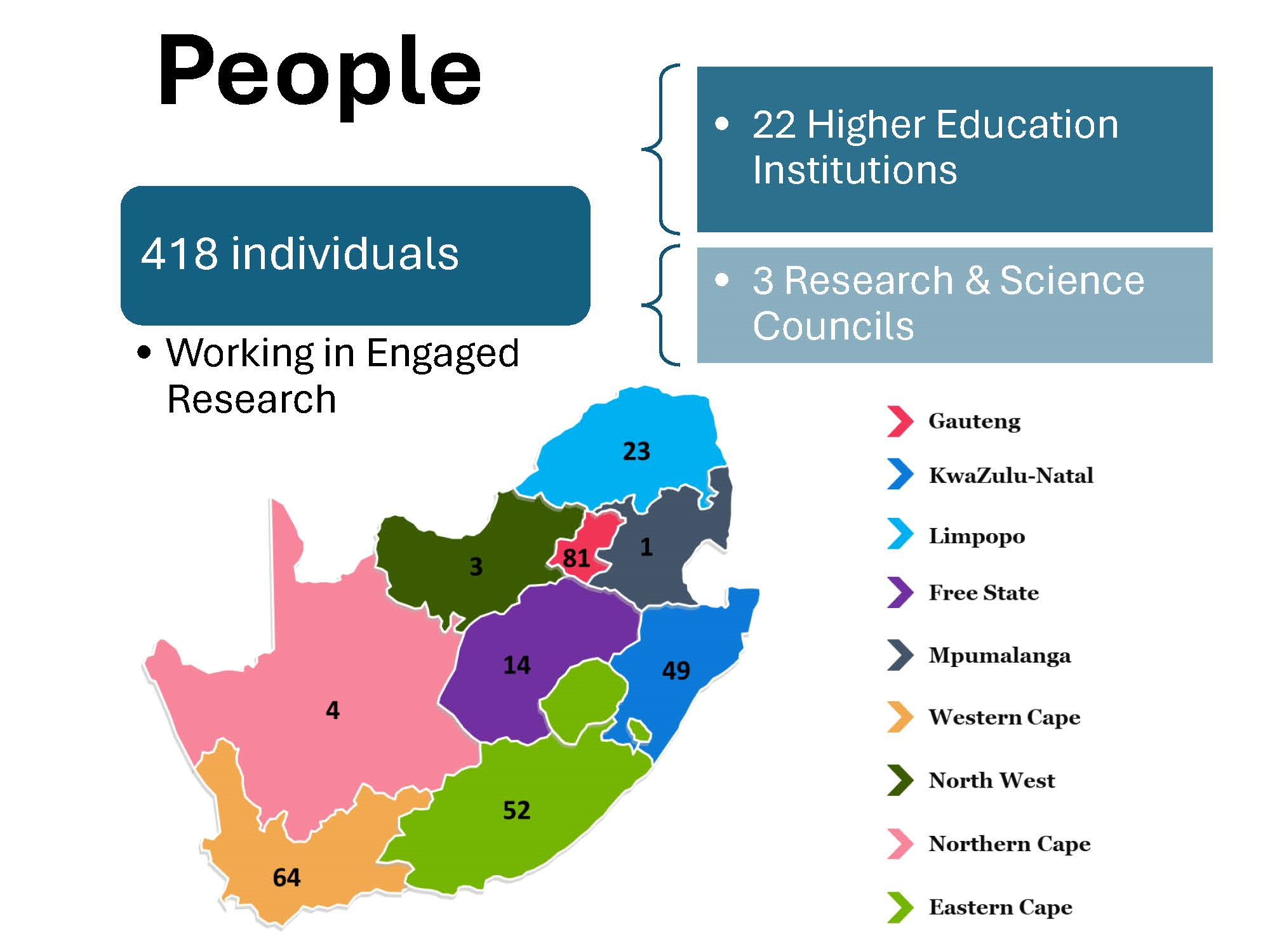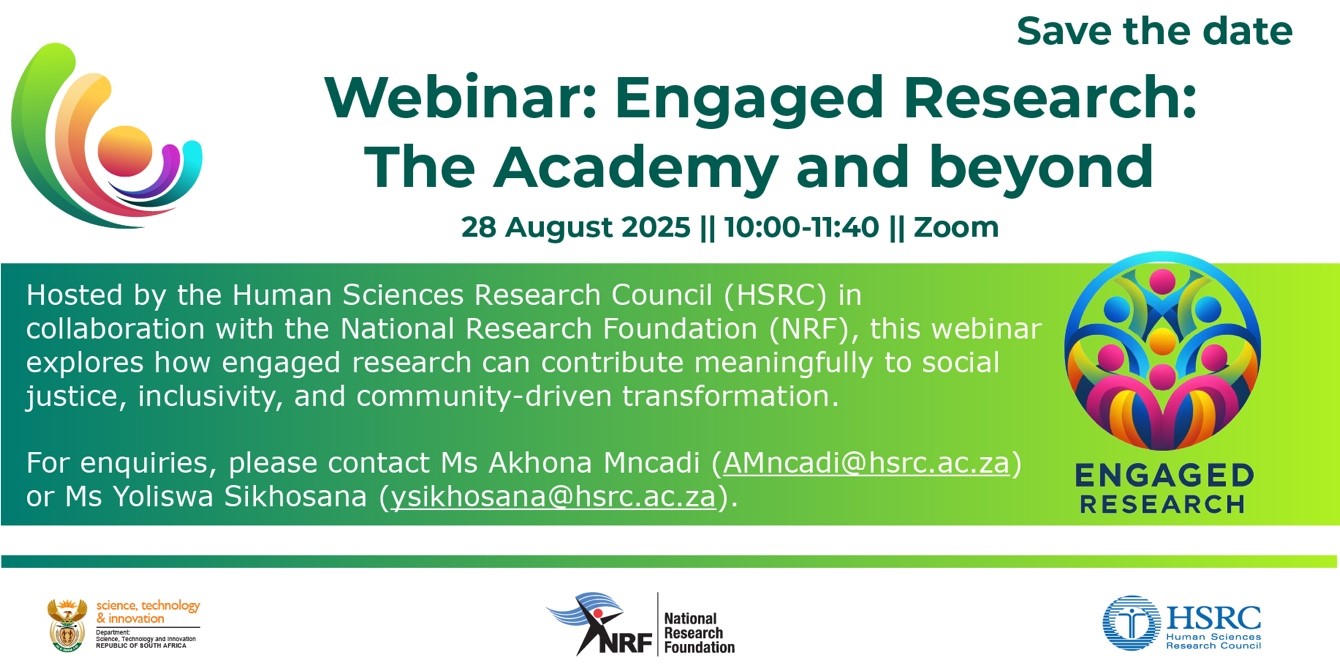By Yoliswa Sikhosana
The first blog in this series explored the power of working with communities to create research that matters. The second focused on people and partnerships as the foundation of engaged research. This next conversation looks at where that journey can lead; into the policy spaces where knowledge meets power, and where evidence can influence the decisions that shape our everyday lives.
At its core, the policy dimension of engaged research is about connection; the connection between what we learn through collaborative research and how that knowledge is translated into tangible change. Policy doesn’t emerge in a vacuum; it is shaped by the voices, relationships, and insights that feed into it. Engaged research offers a way to ensure that those voices include the communities and stakeholders who live the realities that policies seek to address.
When researchers work alongside policymakers from the outset, evidence can be co-produced with an understanding of political and social context. This shifts the dynamic from researchers presenting findings to decision-makers, to working with them to generate knowledge that responds to shared priorities. It’s a process that values dialogue over data-dumping, and influence through trust rather than authority.
Within the Engaged Research Project, this theme invites reflection on how such relationships are built and sustained. It recognises that influencing policy isn’t about lobbying or persuasion alone, it’s about cultivating spaces where evidence is credible, relevant, and grounded in the realities of people’s lives. The goal is not to claim ownership over outcomes, but to open up possibilities for policy that is informed by genuine engagement and co-creation.
Doing this work well takes time, patience, and institutional support. It requires rethinking how engagement is valued within research careers, how funding streams enable collaboration, and how evidence is communicated in accessible and inclusive ways. The ER project continues to explore these questions, acknowledging that the bridge between research and policy is still under construction, and that the process of building it is just as important as the outcomes it may produce.
Ultimately, the promise of policy-engaged research lies in its potential to make knowledge matter where it counts most: in decisions that affect people’s lives. By connecting evidence with policymaking in thoughtful and participatory ways, engaged research can help move us closer to a society where policies are not just informed by data, but shaped through dialogue, reciprocity, and shared understanding.








